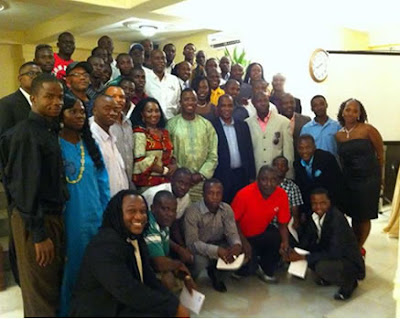Cloning Hyper-V VM the “Street Way”
I am going to share with you the way I consider the “Street
Way” of cloning Hyper-V Virtual Machines. It is recommended to use the import
and export method that Microsoft provide but what if you are having issue with
that method – maybe you should take it the “Street Way”.
The concept of cloning is all about having to setup a new
system from an existing system without having to reinstall the entire OS +
drivers. Microsoft provided a recommend way of doing this but from experience,
the “Street Way” method seems to be successful on many occasions without any
repercussion.
Lets get started with the step-by-step method here. Before
you start, get yourself a cup of tea – oop! Remember do not drink beside the
computer!
·
Stop the VM that you want to clone from the
Hyper-V Manager
·
Go to the folder where the VM is saved – most
time or by default the file is store in the (Documents\Hyper-V\Virtual hard
disks\) folder. You will see the name of the VM vHD. (vHD = Virtual Hard Disk)
·
Copy the vHD of the existing (working) host that
you want to clone.
·
Paste the copied vHD into a new location of your
choice and rename it. I say RENAME it.
·
Go back into the Hyper-V Manager and create a
new VM and go through the wizard until you reach to the Connect Virtual Hard
Disk. Select the “Use an existing virtual hard disk” and make sure that the
copied vHD and location is selected.
·
Click next and then finish. I will assume that
you selected the appropriate option for your environment like the memory, processor,
etc.
·
After this – relax and refill you cup of tea and
come back for additional “Street Way” configuration.
·
Thanks for coming back! Make sure the VM you
copied the vHD from is still off.
·
Start the new VM – it should be identical to the
copied VM. Don’t worry; that is why it is the “Street Way” config.
·
On the clone VM – you need to run the Sysprep to
make the new VM an unique VM.
·
To run the Sysprep, do
this(C:\Windows\System32\sysprep\sysprep.exe). Make sure the “Enter System
Out-of_Box Experience (OOBE) is selected and client OK. The system will run
some command and it will eventually reboot. After it has been rebooted – you should
see a familiar interface.
. After the setup, you can now start the VM you clone from
·
I hope you can continue from the familiar
interface, if not, please leave a comment.
I hope this post was able to help you solve some of the cloning
issue with Hyper-V. Sometime I wonder why Microsoft can’t make cloning easy
without using System Center.
Enjoy and please share it with others.


Comments
Post a Comment